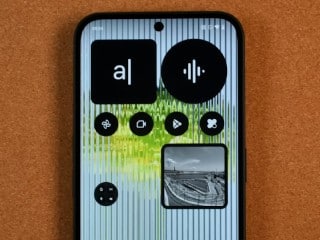- Home
- Mobiles
- Mobiles News
- Apple Escapes One Import Ban in Qualcomm Fight, Faces Another
Apple Escapes One Import Ban in Qualcomm Fight, Faces Another

Photo Credit: Bloomberg photo by Daniel Acker
Qualcomm has fired multiple legal shots at Apple aiming to use patents to get an import ban on the iPhone. In separate rulings Tuesday, one hit and one missed.
The US International Trade Commission on Tuesday invalidated a Qualcomm patent for a battery-saving feature. Earlier in the day, a separate trade judge said Apple infringed a different Qualcomm patent and recommended certain older models of the iPhone be banned. The commission is scheduled to release a final decision in that case in July.
The cases are among some 80 worldwide between the companies in a dispute that's lasted more than two years. Qualcomm is hoping a victory, particularly an import ban, could give it greater leverage in technology licensing negotiations. Qualcomm says it's due billions of dollars in unpaid royalties on the iPhone as the two tech giants argue over the value of the chipmaker's patents.
The Cupertino, California-based Apple denied infringing any of the patents in the two cases and claimed Qualcomm is trying to shut its only US-based competitor out of the market, something Apple argues will hinder the development of the fifth-generation of mobile communications. In both cases at the trade agency, Apple argued that no import ban should be imposed even if a patent violation is found.
Qualcomm, based in San Diego, argued that the opposite is true. If it can't enforce its patents, that will lessen the value of its innovation and give rivals, particularly China's Huawei Technologies, a chance to gain greater market share. Qualcomm has called the Intel products inferior, and accused Intel and Apple of incorporating unlicensed Qualcomm inventions into the Intel chips to improve their quality.
In the earlier case on Tuesday, ITC Judge MaryJoan McNamara said she would be recommending an import ban on certain models of iPhones, which are made in China, according to a notice posted on the Washington agency's electronic docket. The judge found no violation of two other Qualcomm patents in the case.
Qualcomm jumped as much as much as 2.6 percent in New York on that earlier ruling. Both stocks reflected the partial wins and losses in extended trading following the commission decision. Apple was up less than one percent while Qualcomm fell less than one percent.
In the case before McNamara, Qualcomm contended that Apple iPhones with Intel chips infringed two patents related to ways to improve the speed and quality of data downloads and one for a power-saving feature. It's seeking an order that would ban imports of those iPhones. The judge's finding of infringement related to the power-saving feature, according to the notice. Her full findings aren't yet public, and won't be until both sides get a chance to redact confidential information.
"We appreciate Judge McNamara's recognition of Apple's infringement of our hardware patent and that she will be recommending an import ban and cease and desist order," Qualcomm General Counsel Don Rosenberg said in a statement when the earlier notice came out. The company had no immediate comment on the later-issued decision from the full commission.
The original complaint in the McNamara case linked that patent only to the iPhone 7 and iPhone 7 Plus, but it was unclear which models would be affected by this decision. If the ban only applies to those models, it could have a multibillion-dollar impact on Apple for each year that it still offers those devices. The company will probably discontinue them in the next two years.
The second decision announced Tuesday targeted a broader range of iPhones, including the iPhone 7, iPhone 8 and iPhone X, and only ones that had Intel chips. Models that had Qualcomm chips wouldn't be affected. The commission's full decision, which sidestepped arguments for now over whether the legal battle between the two tech titans has broader implications for the US supremacy in the fifth generation of telecommunications, isn't yet public.
Apple, chafing under what it considers onerous and expensive licensing requirements, has directed its contractors to stop paying Qualcomm until the two sides can reach a new deal. It's also turned to Intel to supply the modem chips on its newest models.
Apple likely generated about $58 billion from the iPhone in the US in its 2018 fiscal year. The majority of iPhone sales last year were from newer models like the iPhone X, iPhone 8, and iPhone 8 Plus.
By all accounts, Qualcomm's technology underpins all modern communications and it's a large player in the development of industry standards, spending billions of dollars on research each year. It's also richly rewarded - the company makes money off the chips in all mobile devices, and also gets paid for the use of its inventions in chips made by others.
The Federal Trade Commission has accused Qualcomm of using its patents on industry standards to shut out competitors from the market and demand high licensing fees, and the two sides await a judge's ruling in that case. The patents in this case don't relate to standardized technology but Apple claims Qualcomm is using the ITC to maintain monopoly power.
The cases are In the Matter of Certain Mobile Electronic Devices and Radio Frequency and Processing Components, 337-1093 and 337-1065, both US International Trade Commission.
© 2019 Bloomberg LP
Get your daily dose of tech news, reviews, and insights, in under 80 characters on Gadgets 360 Turbo. Connect with fellow tech lovers on our Forum. Follow us on X, Facebook, WhatsApp, Threads and Google News for instant updates. Catch all the action on our YouTube channel.
Related Stories
- Samsung Galaxy Unpacked 2026
- iPhone 17 Pro Max
- ChatGPT
- iOS 26
- Laptop Under 50000
- Smartwatch Under 10000
- Apple Vision Pro
- Oneplus 12
- OnePlus Nord CE 3 Lite 5G
- iPhone 13
- Xiaomi 14 Pro
- Oppo Find N3
- Tecno Spark Go (2023)
- Realme V30
- Best Phones Under 25000
- Samsung Galaxy S24 Series
- Cryptocurrency
- iQoo 12
- Samsung Galaxy S24 Ultra
- Giottus
- Samsung Galaxy Z Flip 5
- Apple 'Scary Fast'
- Housefull 5
- GoPro Hero 12 Black Review
- Invincible Season 2
- JioGlass
- HD Ready TV
- Latest Mobile Phones
- Compare Phones
- Tecno Pova Curve 2 5G
- Lava Yuva Star 3
- Honor X6d
- OPPO K14x 5G
- Samsung Galaxy F70e 5G
- iQOO 15 Ultra
- OPPO A6v 5G
- OPPO A6i+ 5G
- Asus Vivobook 16 (M1605NAQ)
- Asus Vivobook 15 (2026)
- Brave Ark 2-in-1
- Black Shark Gaming Tablet
- boAt Chrome Iris
- HMD Watch P1
- Haier H5E Series
- Acerpure Nitro Z Series 100-inch QLED TV
- Asus ROG Ally
- Nintendo Switch Lite
- Haier 1.6 Ton 5 Star Inverter Split AC (HSU19G-MZAID5BN-INV)
- Haier 1.6 Ton 5 Star Inverter Split AC (HSU19G-MZAIM5BN-INV)







![[Partner Content] OPPO Reno15 Series: AI Portrait Camera, Popout and First Compact Reno](https://www.gadgets360.com/static/mobile/images/spacer.png)









